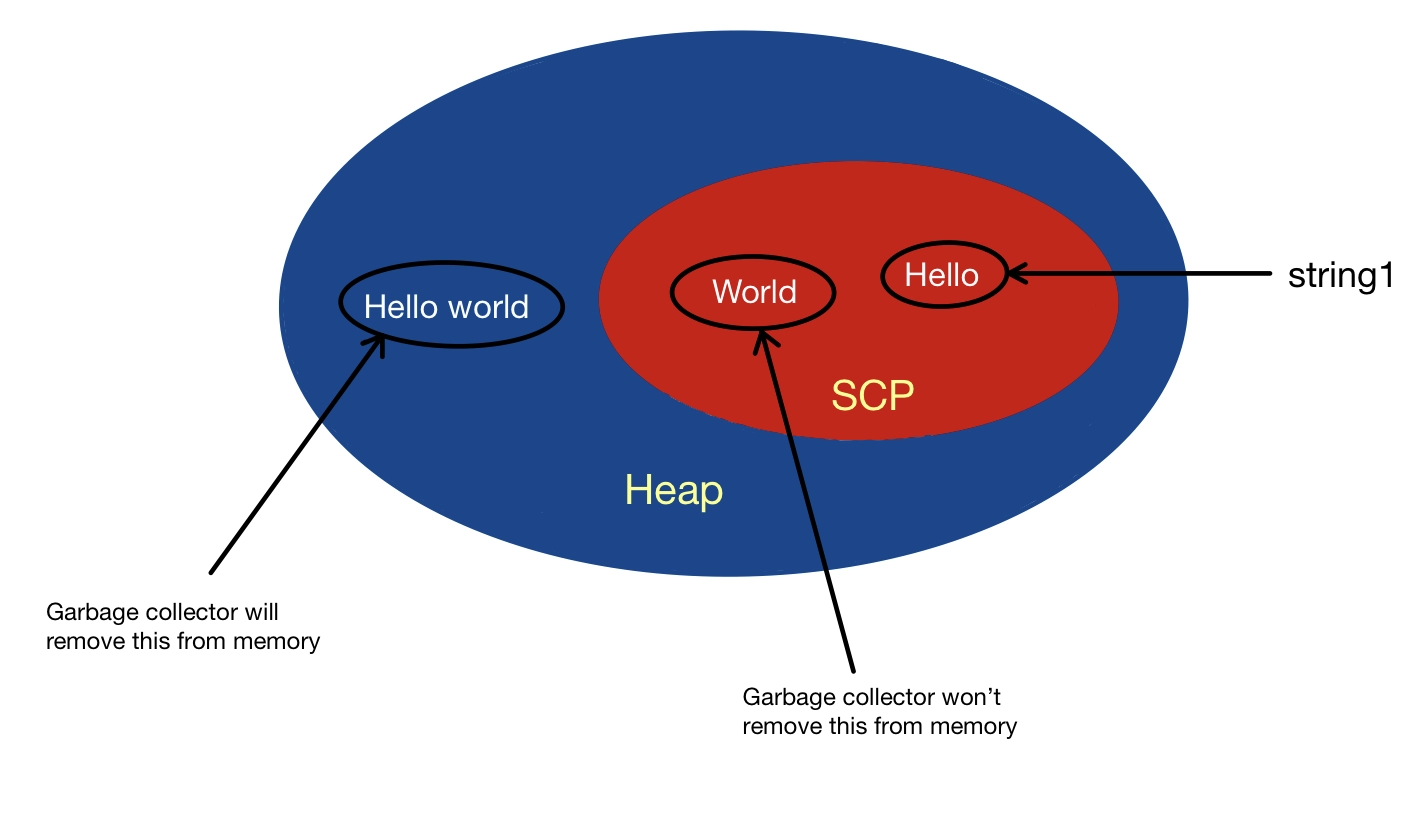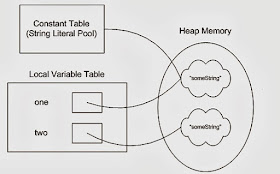Why Are Strings Immutable in Java? Enhancing Code Dependability
Why Are Strings Immutable in Java? Enhancing Code Dependability
Blog Article
Immutable Strings: A Trick Part in Ensuring Data Uniformity and Reliability
In the world of data management, the importance of immutable strings can not be overemphasized. These changeless sequences of personalities play an essential role in maintaining the stability and precision of information within systems. By preserving a state of immutability, data uniformity is made certain, promoting a structure of integrity upon which essential processes depend. The idea of immutable strings goes beyond mere formality; it is a cornerstone in the facility web of information governance. As we check out the benefits, implementation techniques, and sensible applications of immutable strings, a clearer photo emerges of their important nature in guarding the digital landscape.
The Idea of Immutable Strings
Unalterable strings, an essential idea in programming, refer to strings that can not be changed as soon as they are produced. Essentially, as soon as a string worth is assigned, any type of operation that shows up to modify the string in fact creates a new string. This immutability guarantees data consistency and integrity in applications, as it protects against unforeseen adjustments to the initial data.
Advantages in Data Uniformity

Information consistency is essential in various aspects of software application advancement, including database administration, multi-threaded environments, and dispersed systems (Why are strings immutable in Java?). Immutable strings contribute considerably to attaining this consistency by preventing information corruption due to concurrent accessibility. In situations where several procedures or threads connect with the very same information concurrently, immutable strings act as a protect against race problems and synchronization concerns
Moreover, the immutability of strings streamlines debugging and testing procedures. With immutable strings, designers can rely on that when a string is set, it will continue to be unchanged, making it simpler to trace the resource of errors and guaranteeing that test instances create constant results. This integrity in data dealing with ultimately leads to a lot more durable and secure applications.

Implementing Immutable Strings
Making certain the immutability of strings calls for a thoughtful method to their implementation in software application development. One key approach is to make string courses in a manner that prevents adjustments once a string things is produced. By making strings immutable, programmers can improve data uniformity and reliability in their applications.
To carry out unalterable strings successfully, programmers need to prefer creating brand-new string items rather than changing existing ones. This practice guarantees that once a string is appointed a value, it can not be altered. Furthermore, any kind of operation that appears to modify the string must create a new string with the wanted changes rather than changing the initial.
In addition, utilizing unalterable strings can simplify concurrency management in multi-threaded environments. Given that unalterable strings can not be altered after development, they can be securely shared amongst several strings without the threat of information corruption.
Function in Reliability Guarantee
In software program development, the usage of unalterable strings plays an essential function in making sure the integrity of data procedures. Unalterable strings, when produced, can not be customized, making sure that the information they stand for remains consistent throughout the application's execution. This immutability property gives a degree of guarantee that the information being refined will certainly not be accidentally transformed, causing unanticipated end results or mistakes in the system.
By including unalterable strings right into software program layout, programmers can boost the integrity of their applications by reducing the dangers connected with mutable data - Why image source are strings immutable in Java?. Immutable strings aid in preventing information corruption or unplanned alterations, which can be especially essential when managing delicate info or when data integrity is vital
Additionally, making use of unalterable strings streamlines concurrent processing, as numerous strings can safely access and share string information without the danger of one string modifying the web content while one more is reviewing it. This aspect adds dramatically to the general reliability of the software program system, making sure predictable and consistent actions in data handling procedures.
Applications and System Combination
The seamless combination of immutable strings into numerous applications and systems is essential for ensuring robust information consistency and reliability across varied technological settings - Why are strings immutable in Java?. Unalterable strings play an essential function in boosting the integrity of data exchanges and interactions within complicated software environments. By incorporating unalterable strings right into applications, developers can alleviate the dangers related to data tampering, unapproved adjustments, and unintentional modifications, consequently strengthening the overall safety stance of the system
In the context of system assimilation, immutable strings serve as a fundamental element for developing safe and secure interaction networks and facilitating seamless information transfers in between various parts. Their immutable nature makes sure that data transmitted in between systems remains unchanged and proven, minimizing the chance of disparities or click for info errors that could compromise the stability of the whole system. Additionally, unalterable strings can boost interoperability in between inconsonant systems by supplying a standard layout for information depiction, making it possible for extra reliable information processing and exchange protocols across interconnected platforms. By adopting unalterable strings in applications and system assimilation procedures, companies can strengthen their data facilities and maintain the reliability and uniformity of their details properties.
Verdict
In conclusion, immutable strings play a vital function in preserving information uniformity and dependability in various applications and system assimilations. By guaranteeing that strings can not be changed as soon as produced, the honesty of data is maintained, decreasing the risk of disparities and mistakes. Implementing unalterable strings can dramatically enhance the integrity of systems, inevitably this link leading to even more dependable and precise data handling.

Report this page